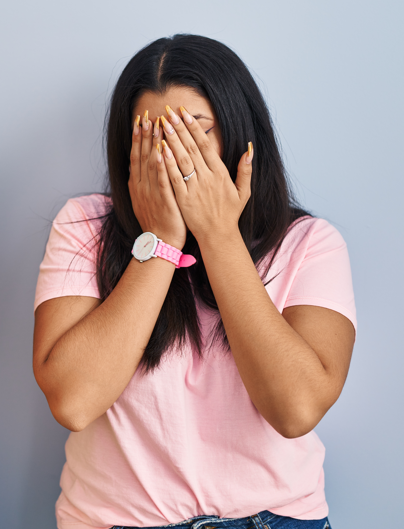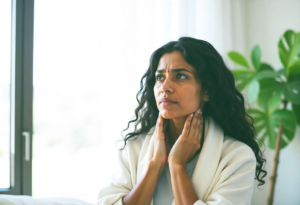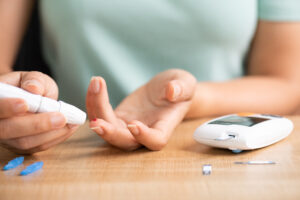Why Is Acne So Common—And So Frustrating?
If you’ve ever struggled with acne, you’re not alone. Millions of Indian women battle acne, not just in their teenage years but well into adulthood. From hormonal imbalances and stress to pollution and skincare mistakes, there are several reasons why breakouts happen—and unfortunately, many myths make things even more confusing.
In this guide, we’ll break down what causes acne, how to identify different types, common myths, and when to seek professional help so you can take control of your skin health with confidence.
What Is Acne? Understanding the Basics
Acne is a chronic skin condition that occurs when hair follicles become clogged with oil and dead skin cells, leading to pimples, blackheads, whiteheads, and cysts. It typically appears on the face, back, chest, and shoulders.
Acne is often linked to:
- Excess oil (sebum) production
- Clogged pores
- Bacterial growth (Propionibacterium acnes)
- Hormonal fluctuations
- Inflammation
What Causes Acne? 6 Common Triggers in Indian Women
1. Hormonal Imbalances (PCOS, Periods & More)
- Acne often worsens before periods due to fluctuating estrogen and progesterone levels.
- Polycystic Ovary Syndrome (PCOS) is a leading cause of hormonal acne in women.
2. Diet & Lifestyle Choices
- Dairy, sugar, and processed foods can contribute to acne in some individuals.
- High stress levels increase cortisol, which triggers oil production and breakouts.
3. Pollution & Skincare Products
- Exposure to dust, pollution, and comedogenic skincare products can clog pores and worsen acne.
- Using the wrong skincare products, such as heavy creams, can lead to breakouts.
4. Improper Face Washing & Touching the Face
- Over-cleansing or scrubbing too hard can irritate the skin.
- Touching your face frequently transfers bacteria, leading to new breakouts.
5. Genetics & Family History
- If your parents had acne, there’s a higher chance you might experience it too.
6. Medications & Underlying Health Conditions
- Certain medications like steroids, birth control pills, and antidepressants can contribute to acne.
Myth vs. Fact: Clearing Up Acne Misconceptions
• Myth: Eating oily food directly causes acne.
• Fact: While diet can play a role, greasy foods don’t directly cause acne. However, a high glycemic diet (excess sugar, dairy, and processed foods) can worsen breakouts.
• Myth: Acne only happens to teenagers.
• Fact: Many women in their 20s, 30s, and even 40s experience adult acne, often linked to hormones and stress.
• Myth: The sun helps clear acne.
• Fact: While sun exposure might temporarily dry out pimples, it actually damages skin, triggers excess oil production, and worsens hyperpigmentation.
• Myth: Popping pimples makes them go away faster.
• Fact: Picking or squeezing pimples increases the risk of scars and infections. Instead, use proper treatments like benzoyl peroxide or salicylic acid.
When Should You Seek Professional Help?
Mild acne can often be managed with good skincare and lifestyle changes, but if your breakouts are persistent, painful, or scarring, it’s time to consult a dermatologist.
• Signs You Should See a Doctor:
- Severe painful cystic acne (deep, pus-filled pimples)
- Acne that doesn’t respond to over-the-counter treatments
- Frequent breakouts before or after your period
- Acne linked to PCOS or hormonal imbalances
- Dark scars and pigmentation left behind by acne
How We Can Help
At Paloma Care, we make it easier for you to speak to experienced dermatologists and women’s health specialists.
- Book a virtual consultation with a doctor who understands your concerns.
- Get personalized skincare and hormonal health guidance.
- Access expert-backed information on acne and women’s health.
Final Thoughts: Clear Skin Starts with the Right Knowledge
Acne is common, but you don’t have to suffer in silence or feel ashamed. Understanding your triggers, busting myths, and knowing when to seek medical help can empower you to take charge of your skin health.
Want to take the first step? Schedule a consultation today and start your journey toward clear, healthy skin!


